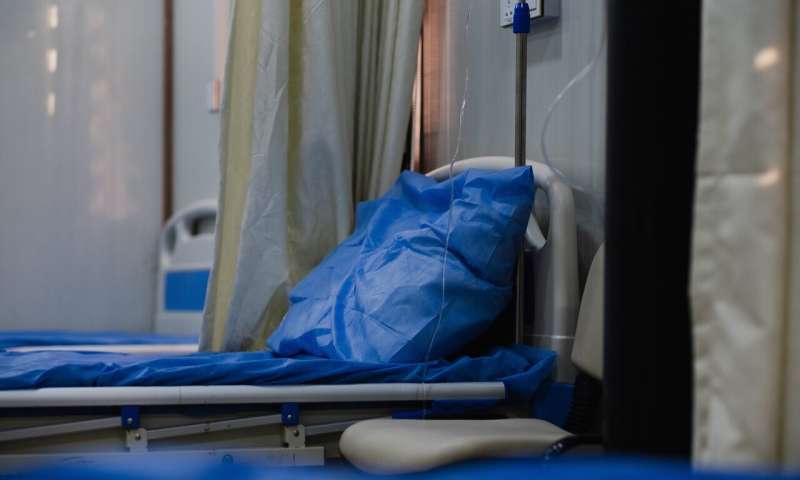As COVID-19 spreads, potentially deadly fungus infects LA County health care facility


The shortage of medical equipment, including gowns and gloves, triggered by the coronavirus outbreak may be helping to spread dangerous germs within health care facilities, according to officials who warned of a potentially deadly fungus in a Los Angeles County health care facility.
L.A. County officials are warning about multiple reports of the fungus, known as Candida auris, in health care facilities; there is also an increase in reports of the fungus in Orange County.
At least one outbreak has been identified at a facility in L.A. County, according to an advisory, intended for health care professionals, issued by the Department of Public Health.
C. auris is a fungus that was first identified in 2009 in Japan but since has been declared by the U.S. Centers for Disease Control and Prevention a “serious global health threat.” The yeast “can cause bloodstream infections and even death, particularly in hospital and nursing home patients with serious medical problems,” the CDC said, noting that the fungus causes death in more than 1 in 3 patients who suffer from an invasive infection, such as one affecting the blood, heart or brain.
C. auris is considered particularly dangerous because antifungal medications are often ineffective against it. The fungus can live on surfaces for several weeks and can spread through hospitals and nursing homes by contact with infected people and contaminated surfaces and equipment.
The fungus can survive many routinely used disinfectants, county officials said.
“If a patient is positive for more than one organism, ensure you use an Environmental Protection Agency-registered hospital-grade disinfectant that is effective against all organisms the patient is positive for. Check the label,” health officials said.
The fungus has been found not only in the bloodstream, but also in the urine, respiratory tract, wounds and ear canals of patients.
“People who get invasive Candida infections are often already sick from other medical conditions, so it can be difficult to know if you have a C. auris infection,” according to the CDC.
Source: Read Full Article




